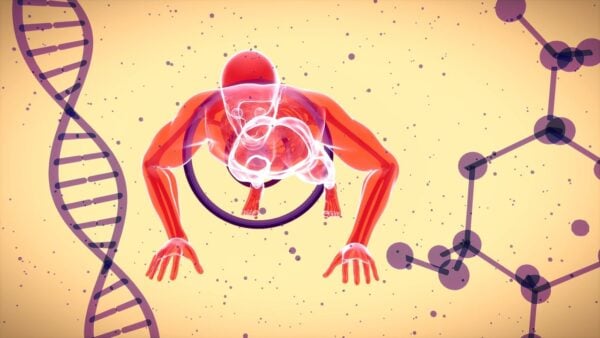
Newsletter Subscribe
Enter your email address below and subscribe to our newsletter

Some well-known scientists and futurists think humans might have a lifespan of 1000 years by 2050. They see revolutionary advances in biotechnology, artificial intelligence, and genetic engineering as the keys.
Ray Kurzweil, Ian Pearson, and Aubrey de Grey all argue that aging could become a treatable medical condition, not just an unavoidable fate. That’s a pretty wild shift from the old goal of just hitting 100.
Honestly, the timeline sounds bold, maybe even a little out there. But technology futurists think breakthroughs in AI, robotics, and digital consciousness transfer could bring us closer to what they call “practical immortality.”
They imagine merging genetic tweaks, nanobots, and cloud-based minds to break through the biological ceiling on human aging. There are already experiments where scientists made worms live five times longer by changing their genes.
Of course, these radical life extension tools might only reach the rich at first. Experts warn about big societal hurdles—economic and social gaps could keep these advances out of most people’s hands for a while.

These predictions rest on three main pillars: genetic engineering breakthroughs, new tools like AI and nanobots, and a hard look at what past longevity predictions got right—or wrong.
Researchers have made real progress in figuring out how to stretch human lifespan. In 2020, they found ways to make nematode worms live five times longer by altering their genes.
Those worms actually share some genetic traits with us. That’s a hint that similar tricks might work in people someday.
Right now, research is zooming in on a few areas:
Some scientists even say people alive today could hit 140. That’s a huge leap from where we are now.
Medical advances have already tacked on about 20 years to average lifespans in the last 65 years. Many believe that pace will speed up as new tech rolls out.
Futurists think practical immortality could show up as soon as 2050, thanks to a mashup of advanced technologies. Ray Kurzweil expects AI to outthink humans by 2029.

He also predicts that by 2045, humans will merge with machines using brain-computer interfaces. Nanobots could be injected to halt aging and push lifespans toward 1000 years.
Key technologies for immortality include:
| Technology | Purpose | Timeline |
|---|---|---|
| AI singularity | Enhanced intelligence | 2029 |
| Brain-computer interfaces | Digital consciousness | 2045 |
| Nanobots | Cellular repair | 2050 |
| Genetic engineering | Disease prevention | 2050 |
Ian Pearson thinks the rich will get 1000-year lives first. Eventually, the tech might reach more people.
Digital consciousness could let us upload our minds into artificial bodies. That would sidestep the whole problem of aging flesh.
Back in 1925, some scientists guessed people would live to 1000. At the time, Americans were lucky to hit 58.
Those guesses came from a pretty limited understanding of biology. These days, scientists know a lot more about genetics and how aging works.
Today’s predictions stand out for a few reasons:
Aubrey de Grey thinks aging could be curable by 2050. That’s a major mindset shift—aging as a disease, not destiny.
But critics say technology can’t fix every problem. For now, life extension treatments might only reach the wealthy.
Modern scientists focus more on practical steps than wild speculation. That’s part of why these 1000-year lifespan predictions feel a bit more grounded than the old ones.
Researchers are digging into how cells age and how to slow that down. New medical treatments and genetic tweaks look promising for pushing human life well past today’s ceiling.
Aging kicks in when cells start breaking down. It turns out, cells have built-in clocks that limit how many times they can split and fix themselves.
These clocks are called telomeres. They’re little caps at the ends of chromosomes, and they shrink every time a cell divides.
When telomeres get too short, the cell just stops working or dies. Scientists have figured out ways to make telomeres longer, which could help cells stay young for much longer.
Main reasons cells age:
Back in 2020, scientists made worms live five times longer by tweaking their genes. Humans share some of those same pathways.
Modern medicine is rolling out new ways to fight aging at its roots. Gene therapy lets doctors fix broken genes that trigger disease and aging.
CRISPR gene editing allows scientists to snip out bad DNA and swap in healthy bits. That could fix genetic flaws that shorten life.
Some current genetic strategies:
Some researchers think that by 2030, anti-aging treatments might help people live past 100. These treatments would target the root causes, not just the symptoms.
Drug companies are testing medicines that can make old cells act young again. They do this by clearing out damaged cells and letting healthy ones thrive.
Stem cells are one of the most exciting options. These cells can turn into any tissue the body needs, so they could replace worn-out organs.
Doctors already use stem cells for some diseases. In the future, we might use them to rebuild whole organs or repair age-related damage all over the body.
Surgery is also evolving fast, with robot helpers and new techniques. Some new surgical options can:
Insulin plays a surprising role in lifespan. Researchers have seen that controlling insulin can slow aging in animals.
People with better insulin control often live longer and stay healthier. New insulin-based treatments might help people live longer by keeping blood sugar steady and reducing cell damage.
Mixing these three approaches could lead to powerful anti-aging therapies. Each one tackles aging from a different angle, and together, they could be even more effective.
The idea of 1000-year lives brings up some tough scientific and social questions. Sure, research is moving fast, but there are still real biological limits—and society has to think about resources and population changes.
Scientists face some big roadblocks in pushing human life to 1000 years. Some research hints we might be hitting natural limits for how long people can live.
Results are mixed so far. Transferring longevity genes in labs has shown promise, but testing whether any of these therapies really stretch human life past 100 is almost impossible—it just takes too long to know for sure.
Main Scientific Challenges:
Ethical questions make things trickier. Who gets these treatments first? Is it fair to chase extreme longevity when so many people already lack basic healthcare?
The idea of humans living close to 1,000 years is wild, but it brings up some tough questions about overpopulation, resource use, and how society might have to reinvent itself.
If people stop dying while birth rates stay the same, population numbers could skyrocket. Our current economy expects folks to work for a few decades, then retire—but that system would crumble with thousand-year lives.
We’d probably need to rethink retirement, education, and how careers work from the ground up.
Economic Impact Areas:
Some experts point out that this kind of radical change might only be available to a few—mainly because of high costs. That could make the gap between haves and have-nots even wider than it already is.
Resource scarcity? That’s a big one. We’d need way more food, water, and energy to support people living for centuries.
Looking at where we are now helps frame the future. In the 20th century, average lifespan in developed countries went up by about three years each decade.
But lately, that progress has slowed down. Some researchers argue we might be hitting a ceiling with current biology.
Current Life Expectancy Factors:
If we ever crack the code for 1000-year lifespans, who gets access will shape average life expectancy. The wealthy might get there first, creating a split between those who live “normally” and those who don’t.
The shift probably wouldn’t happen overnight. We’d see gradual bumps—from 70-80 years to maybe 100 or 150—before anyone starts talking about millennium-long lives for most people.
Living to 1000 years isn’t just about science. It’s a messy mix of ethics, technology, and social change. There’s a lot of hope, but also a ton of hurdles.
Scientists have their eyes on a few big breakthroughs. Some predict nanobots and artificial intelligence could be game-changers in the fight against aging.
Nanobots might one day fix cells right at the molecular level. Imagine tiny machines repairing DNA or cleaning up junk inside our bodies.
AI could help doctors spot new treatments fast, sifting through medical data for patterns humans would miss.
Gene therapy is also getting a lot of buzz. Scientists have made worms live five times longer by tweaking their genes.
Regenerative medicine is another hot area. Stem cells could help us grow new organs or patch up damaged tissues—pretty wild, honestly.
Our genes have a huge say in how fast we age. Researchers look at people who make it past 100, hunting for the secrets in their DNA.
Some genes seem to shield cells from damage, while others help fix things when they go wrong.
Changing certain genes in worms made them live much longer. Humans actually share a surprising number of these genes with worms.
Scientists hope to develop drugs that target these aging genes. Maybe that could slow aging down in people, too.
Gene editing tools like CRISPR might let us fix bad mutations or even add helpful genes. It’s a bit sci-fi, but not impossible.
Living for a millennium? That opens a can of ethical worms. Overpopulation and sharing resources become huge questions.
Would Earth have enough food or water for everyone? Longer lives could put a real strain on the environment.
And if only the rich can afford these treatments, inequality could get even uglier.
Family dynamics would get weird, too. Imagine having several generations of great-great-grandparents still around and working.
We’d have to rethink marriage, inheritance, and all those laws built for a world where people rarely make it past 80.
Work and retirement would turn upside down. People might have three or four careers over a thousand years.
Schools would need to change, too. Folks could spend decades retraining for new jobs, maybe more than once.
Population growth could get out of hand. The number of people over 100 might hit 3.7 million by 2050, and that’s just the start.
We’d need more housing, and cities would have to plan for people sticking around a lot longer.
Politics could get messy. If most voters are centuries old, would young people even have a say?
The price tag for healthcare could go through the roof. Keeping people healthy for centuries isn’t cheap.
Social Security and pensions? They’d be toast. Those systems can’t handle paying out for hundreds of years.
The job market would get crowded fast. If nobody retires, where do young workers fit in?
Saving for retirement would be a whole new ballgame. You’d need to plan for hundreds of years, not just a few decades.
Honestly, innovation might slow down if older folks cling to old ideas. Sometimes, new thinking needs new generations.
Most scientists really doubt humans will make it to 1000 years by 2050. Some experts even think our lifespan might hit a hard ceiling somewhere between 115 and 125 years.
Global life expectancy might go up by about five years by 2050. That’s still nowhere close to a millennium.
Life expectancy gains have slowed down in many countries since the 1990s.
Lab studies on animals sometimes look promising, but humans are a whole different story. Our bodies are way more complicated than worms or mice.
Medical technology can’t stop every cause of aging yet. Honestly, scientists still don’t fully get why we age and die.
Ultimately, the lifespan of 1000 years could inspire generations to come.
Investigating the lifespan of 1000 years is vital for our understanding of longevity.
As we explore the lifespan of 1000 years, we unlock new possibilities for humanity.
The lifespan of 1000 years is more than a dream; it could be our future.
A lifespan of 1000 years could offer a unique lens through which we view life.
The ambition for a lifespan of 1000 years reflects our ultimate aspirations.
Debates surrounding the lifespan of 1000 years challenge our ethical boundaries.
As we venture into the future, the lifespan of 1000 years remains a focal point.
The quest for a lifespan of 1000 years inspires hope and innovation.
A lifespan of 1000 years would fundamentally change healthcare as we know it.
Understanding the lifespan of 1000 years is crucial for future advancements.
Society must prepare for the implications of a lifespan of 1000 years.
The lifespan of 1000 years offers a vision for future generations.
Exploring the lifespan of 1000 years encourages creative thinking about future possibilities.
A lifespan of 1000 years may redefine our life experiences.
The pursuit of a lifespan of 1000 years compels us to rethink aging.
Innovations could eventually lead to a lifespan of 1000 years for humans.
Exploring the lifespan of 1000 years opens new avenues in scientific inquiry.
The conversation around the lifespan of 1000 years continues to evolve.
As research progresses, the lifespan of 1000 years remains a tantalizing goal.
A lifespan of 1000 years could alter our approach to health, wellness, and longevity.
The implications of a lifespan of 1000 years are profound for society.
Discussions about the lifespan of 1000 years challenge our traditional views on life expectancy.
With advancements in technology, the lifespan of 1000 years could become a reality.
Many believe that achieving a lifespan of 1000 years is within our reach.
In discussions about health and wellness, the lifespan of 1000 years often surfaces.
The concept of a lifespan of 1000 years could redefine our understanding of aging.
The scientific community is increasingly focused on the lifespan of 1000 years as an achievable goal.
As we delve into the possibilities, the lifespan of 1000 years seems to be a topic of great interest.